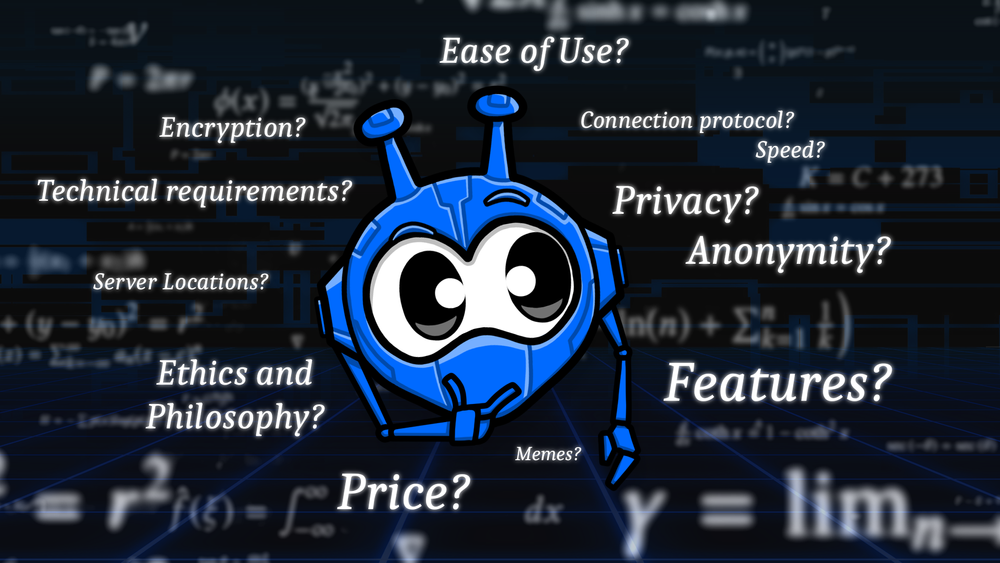Since the start of this year, there have been several important developments in the legal censorship sphere. In the United States, state legislatures are debating the creation of systems of digital identification and the use of VPNs to circumvent such systems. Because we are an internet privacy company, we saw this as a unique opportunity to seek out and speak to a direct source involved in this process and hear more context about what is happening.
Objecting to Louisiana’s HB142
I had the unique opportunity to speak to Representative Mandie Landry, from Louisiana’s 91st district. Rep. Landry defines herself as an advocate for progress and despite facing tremendous opposition, she fights for justice for marginalized communities and stands up against systemic injustices in Louisiana every day. Don’t just take our word for it, you can read directly about her priorities and legislation here. When she’s not crusading for public justice, she also offers her services as an experienced attorney at law, specializing in a number of areas.
The reason that I wanted to speak to Representative Landry, in particular, was her vote of defiance against the recently implemented HB 142. This was a bill that empowered the state government to create (and outsource the implementation of) a digital system of ID verification, called the LA Wallet. Residents of Louisiana can upload the details of their driver's license or other official identification and, once verified, use the digital license as they would normally with the physical copy. There is very little information (in both technical and financial sense) in the public domain that describes exactly how the LA Wallet and sites that contain “content harmful to minors” are cooperating with one another.
Breaking Down the Legislation
The headlines for this legislation generally focus on the usage of this system for users who are trying to access pornographic content. Upon a closer inspection, I found that the language of the bill was actually broader (and more vague) when defining what constitutes content that is “harmful to minors.”
In the context of pornography, if a website contains more than 33% sexually explicit content, it’s considered harmful to minors. The language of the bill is very specific and rather thorough about what different types of content are considered sexual in nature. However, there is a final clause in that definition, a single sentence at the bottom of the definition where the language seems very purposefully vague. It reads as follows:
The material taken as a whole lacks serious literary, artistic, political, or scientific value for minors.
It’s also important to note that this bill now gives ISPs explicit permission to block or reroute web traffic to sites considered harmful to minors if the user's age hasn't been verified. This creates a very ominous situation, where a site could be deemed “harmful” for entirely arbitrary reasons, and have its access from within Louisiana completely blocked.
Considering the political atmosphere in the United States regarding things like abortion, especially in Southern and generally conservative states, it’s not hard to imagine ways in which this system will be abused.
An Interview with Rep. Mandie Landry on LA HB 142
Q: Can you elaborate on why you voted against LA HB 142?
It was a bill about children and porn, no matter what it was going to pass. As the most progressive member of the state legislature, including my own district, I have the freedom to vote differently. Honestly, I didn’t think it was necessary. Personally, I think this is a parent thing. It's on them to monitor and decide what’s appropriate for their children. It seems like a very “big government” thing to do, which is ironic from Republicans. In Louisiana, we still have really poor kids who don't even have access to the internet at home, so it felt unnecessary.
The representative who filed the bill says it's harmful, but very minimal evidence was provided on the cost or effectiveness of this system. In fact, Rep Schlegel has a Master of Arts (Marriage & Family Counseling) from the New Orleans Baptist Theological Seminary. Her practice is specifically sex addiction or something in that sphere, so it’s easy to see that she may have a very clear point of view on this. Kids these days already know how to get around this, so it's ultimately up to the parents to take ownership of this kind of thing.
Q: The language in the bill is only very specific about pornographic materials in the “harmful for minors” definition, but very vague about scientific, political, literary, or artistic content. What is the reason for this?
That was (probably) not the specific intent, but I can absolutely see this system getting used that way. Some of the language in this bill is already pretty ridiculous, i.e. the 33% ruling about adult content. What if it’s only 30% adult content? Under the language of this bill, that would be fine.
In my opinion, there is no real practical solution for this problem. And another thing, I also think this is unconstitutional in a commercial sense. It’s a product that crosses state lines, therefore it’s up to the federal government to make these kinds of decisions.
Q: The new law allows ISPs to reroute traffic, is there concern that this functionality will be abused to silence opponents?
That’s absolutely how it could be used. It’s absolutely not legal either. I can see ISPs not wanting to risk any lawsuit or liability from the state. This also applies in the area of abortion pills online.
For example, a company based in New York that ships to Louisiana is liable, which violates the commerce clause of the constitution (i.e. the clause restricts states from impairing interstate commerce). The chilling effect is that it's unconstitutional, but the companies producing these “illicit” materials will simply stop selling. If you can’t get a bunch of them together to bring serious amounts of money into a lawsuit, the state has the control.
Q: What guarantees can the state make that user data is safe in the hands of a 3rd party company?
I am honestly not 100% certain of the parameters of its usage. What I do know is that it’s a digital driver's license that can also be used for other licenses. The company in charge of the LA Wallet has supposedly set up a program with PornHub that would tell the website if a user is over 18 but no data is retained. I’m not familiar with the technological side of things though.
There is really no way to assure people that the info will never come out. I wasn’t in the committee that voted on it, one of the senators who is a lawyer laid out the legal questions, (i.e. don’t the viewers have the right to choose?) but that seemingly wasn’t a concern.
Q: By giving the government the power to ban or restrict any ICTs that it deems a threat, the Restrict Act could undermine the First Amendment rights of U.S. citizens to access and share information online. Do you agree with this statement?
Absolutely.
It has always been going towards censorship. Some people find things acceptable whereas others don't. It’s seen large-scale adoption by the far right. I always ask: Should false information about things like vaccines be allowed? Are tax assessor records part of the public domain if they can be used to find where I live? There’s a gray area when it comes to what we consider a free exercise.
National grassroots legislation movements have been going around the country preaching things like this. I thought this particular movement came from Rep Schlegel, but I'm curious if it was planted by one of the larger national groups. Conservative lobby groups like ALEC or Heritage Foundation, a lot of it seems to have been tested here in Louisiana first. What I find interesting is that it seems to be portrayed as being “from” here. It all kind of started with the library stuff, which has been going on for a year or two, alongside the debate about CRT.
There’s Likely More to Come
So there you have it, words from a real person involved in the process itself.
To be honest, the discussion did not inspire confidence in the system at large for me. There’s at least one silver lining: it gives us a unique chance to use our reach to educate the public about these sorts of issues.
It’s now likely that we will see more copycat bills and a general shift towards giving governments even more powers to censor content and people deemed “harmful” by the state. A state which is increasingly influenced by private entities with a seriously alarming agenda.
The goal of these groups like ALEC is to enact policy change that represents their ideal view of what the United States government should look like - a view that many of us are likely to disagree with. We try not to get too overtly political, but when it comes to censorship of information, we at Windscribe have a rather hardline stance on this matter.
Our debate is not about the dangers of pornography but about your right to access content free of undue influence or censorship. It’s in the hands of every individual (or guardian) to make a conscientious choice about their or their ward's content consumption.
Thank you to Rep. Mandie Landry for contributing their time and thoughts for this interview.




